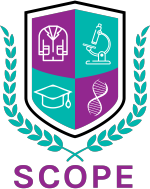| Course Name | Certificate in Phlebotomy and patient communication |
|---|---|
| Course Level | Certification |
| Course Duration | 6 months (Government affiliation) 1.5 months (SCOPE certificate) |
| Course Eligibility | Any Paramedics |
| Average Salary | INR Rs. 2,00,000 to Rs. 3,00,000 per year. |
| Areas of Employment | Hospitals, Diagnostic Laboratories, Blood Donation Centers, Private Practices, Outpatient Clinics, Research Institutions, Public Health Organizations, Home Healthcare Services |
What is a Certificate Course in Phlebotomy and Patient Communication?
This course focuses on the dual aspects of phlebotomy skills and effective patient communication. It covers techniques for safe and efficient blood collection, along with strategies for engaging and reassuring patients throughout the process. At SCOPE, we ensure that our students receive hands-on training with the latest tools and technologies, as well as develop the interpersonal skills necessary to provide compassionate patient care.
Why Should You Take This Course?
This certificate course offers a comprehensive pathway into the healthcare field, equipping you with vital skills that are in high demand. Mastery in phlebotomy combined with strong patient communication skills makes you a valuable asset in any medical setting. Completing this course will enhance your employability and prepare you for a variety of roles in healthcare environments.
Why SCOPE?
Choosing SCOPE means accessing high-quality education and practical training. Our program is designed by experienced professionals and delivered in modern facilities, ensuring that you gain both the theoretical knowledge and practical skills needed for success. Enrolling at SCOPE sets you on a path to a fulfilling career in healthcare, equipped with specialized skills in phlebotomy and patient interaction.
Role and Responsibilities:
Phlebotomy:
- Performing venipuncture and capillary punctures for blood collection
- Ensuring patient comfort and safety during procedures
- Proper labeling, handling, and transportation of blood samples
- Following infection control protocols and maintaining hygiene standards
Patient Communication:
- Engaging with patients to explain procedures and alleviate fears
- Demonstrating empathy and professionalism in patient interactions
- Collecting patient information and ensuring accurate documentations
- Managing patient concerns and providing reassurance during procedures
Career Prospects:
Graduates can pursue careers in various settings, such as:
- Hospitals: Working in phlebotomy departments, assisting in blood collection and patient care.
- Diagnostic Laboratories: Conducting blood draws and processing samples for diagnostic testing.
- Blood Donation Centers: Facilitating blood donations and ensuring donor comfort and safety.
- Private Practices: Supporting physicians with blood collection and patient communication.
- Outpatient Clinics: Performing blood draws and assisting with various outpatient services.
- Research Institutions: Collecting blood samples for clinical trials and research studies.
- Public Health Organizations: Participating in community health programs and screenings.
- Home Healthcare Services: Providing phlebotomy services to patients in their homes, ensuring comfort and care.

